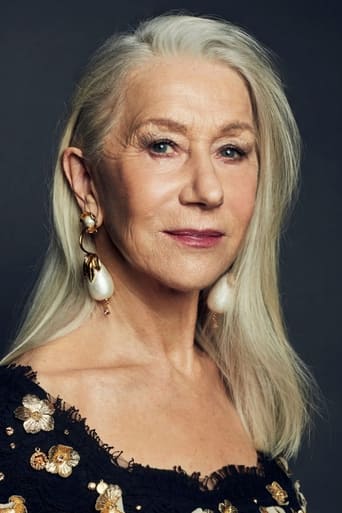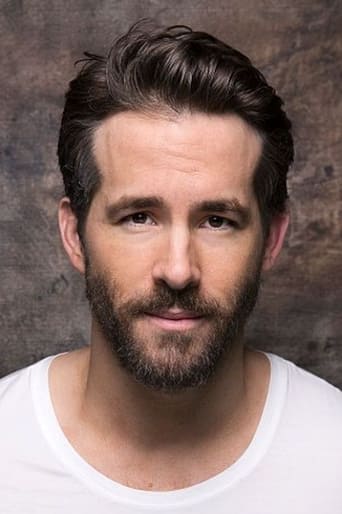elicopperman
"When people see the famous portrait, they see a masterpiece by one of Austria's finest artists. But I see a picture of my aunt, a woman who talked to me about life while I brushed her hair in her bedroom." Truer and more earnest words could not have been spoken better than that of Austrian- Jewish holocaust survivor, Maria Altmann, known for successfully reclaiming some of her family paintings from the Austrian Government that were abducted by the Nazis. Today's film tackles that subject, and upon viewing it for the first time, it managed to speak above higher levels of sincerity and personal attachment that I don't see often in cinema.The first notable element that the film portrays beautifully is the character of Maria Altmann herself. Growing up as a child in the mid-20s, she saw her aunt Adele Bloch-Bauer being used to create the grim yet beauteous woman in the portrait known as Woman in Gold. Adele had a few portraits made of her by Austrian symbolist painter Gustav Klimt at age 25 through negotiations by her husband. Considering how much the portrait of her aunt meant to Maria personally, it makes sense that she would feel disgusted to see how this painting was used in later years. In fact, throughout the film, we see flashbacks of Maria's childhood that perfectly immolates her lifespan from childhood to young adulthood. Given how close Maria felt to her aunt as elegantly displayed in these flashbacks, this makes the symbolism of the gold painting all the more powerful. Klimt's intention was to showcase a "swirling gown within a blaze of gold rectangles, spirals and Egyptian symbols", creating her aunt as the personification of Vienna's Golden Age. After her aunt died, the family would look upon the paintings through divineness, leaving Maria only with memories of the paintings, before they were taken away. This is what presents the "Portrait of Adele Bloch-Bauer I" as a symbol of all that her family had lost.One aspect that the film never shies away from is the horrible treatment of European Jews. As mentioned before, the film often depicts flashbacks of Maria's struggles in Austria. Not just the treatment of "inferior" people, but by also demonstrating Nazis taking family possessions away from their original owners and would never have them restored. Maria's story compliments this unfortunate event, but the idea that it's best to let go of the past plays a notable contrast, despite how unjustified the act was. Sure, those who may not have been affected by it could still feel sorry for such a tragedy, but the ones who had a piece of them taken away by their foes just adds into how much of a double-edged sword the justice behind this act really is.Adding on to the well personified protagonist, the acting is also spot on. Helen Mirren is able to showcase the guilt hidden in Maria from how she abandoned her family to live a safer life, and is excellent at presenting her conflicted soul. She perfectly understood how Maria was tangled up between the past and the need to move on, elevated with tough emotions. Ryan Reynolds may be praised for Deadpool nowadays, but he is able to personify lawyer Randy Schoenburg (grandson of composer Arnold Schoeburg) as a young persistent lawyer extraordinarily. As a struggling family man with strong conviction for his roots, Reynolds leaps his persona to whole new heights as a determined lawyer in getting justice back to the right person.Similar to Big Eyes, the supporting cast either come off as obstacles or supporters in the protagonist's determination to gain their rightfully owned possessions back. Some like Hubertnus Czernin and Pam Schoenburg do support the duo in their court cases and battles against false copyright claims as well as giving some insight on their own pasts. Others, on the other hand, like Dr. Dreimann, Rudolph Wran, and those in favor of the Austrian government are highly intelligent and guarded civilians who have to deal with someone wanting back a possession which is also a legendary piece of their motherland. Not to mention, the court room scenes are at their most complex, especially in how Randy exercises in ownership loopholes and fighting against claims of the 1976 copyright act.Now the story itself does fall a little derivative with the two main leads conflicting with one another throughout before officially teaming up. Yet as overused as it seems, it actually helps give Randy a clear purpose to aid Maria given how much he cares about the identity of his own people as much as hers. Along with the gut-wrenching drama, the film occasionally sneaks in some subtle humor for good measure. Even if this was to keep the horrid trauma from what it truly was in real life, it gives off a more relatable vibe with the story and characters for the audience. Finally, the use of grim cinematography during the flashbacks fits perfectly with the time period to create the right sense of depression in contrast to the brighter cinematography of Altmann's court cases in '99.With sharp acting, well defined characters, and perfect contrast between the past and future, Woman in Gold is such remarkable insight on a fascinating woman who fought the law to gain her rightfully owned possessions back. The film actually ends with a quote that states, "It has been estimated that over 100'000 works of art taken by the Nazis have not been returned to their rightful owners". That quote only makes Maria's success all the more unique seeing as how much that piece meant to her, even if it meant taking a historic piece of art away from Austria. While some may not know of the actual history, this motion picture manages to stay true to the facts, and would definitely recommend to anyone who wants to see an underdog story about gaining one's memories back.
clewis2666
As one or two other non-professional reviewers have said, I just don't understand the many negative reviews from the professionals. As a Jew, I found the film totally gripping and beautifully done in every way. The film is grounded in the Holocaust and faithfully portrays the vicious treatment of Jews by the Austrian people as well as the Nazis. The later intransigent attitude of the Austrian authorities who will do anything to hang on to the stolen painting should come as no surprise. Austria has never admitted its culpability in the Nazi atrocities and never will, unlike Germany.I have substantial doubts about the sensitivity of these negative reviewers to the plight of the Jews at that time. Their childish complaint seems to be that the film isn't exciting enough and is schmaltzy. I found it gripping and truthful.
nottoman
I watched the trailer and immediately was drawn to this for several reasons - namely Helen Mirren is one of my favorite actresses and I knew she would do well in this role, and also the fact that this was based on true events dealing with such an incredible part of our history that shouldn't be forgotten. They story line was well laid out and kept me very invested through the entire movie, and I was surprised at how involved Ryan Reynolds becomes personally involved in the adventure. The history that was woven into the present day was absolutely top notch - magical. I was so affected after it was over - it really made me reflect on my heritage and about my posterity. I think everyone should watch this movie.







